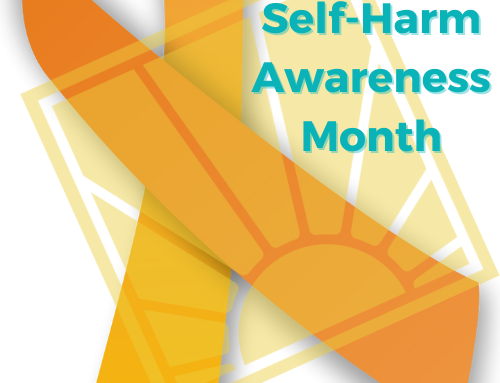In working with individuals who self-harm, it is essential to involve their families in the treatment process. The effects of self-harm will be different for each family member. Their stories are important to hear because often times the individual who is doing the self-harming creates a reality in their own mind that they are only harming themselves. This is simply not true. Ask any family member of a self-harmer and you’ll find that the effect on them is significant.
Effects of Self-Harm
Here are some of the common themes that family members report experiencing when their loved one self-harms:
- Guilt: often times family members feel like they should have somehow stopped the self-harming from occurring. They feel guilty for not noticing the warning signs beforehand. In some cases they feel responsible for the self-harming because the self-harmer will blame the other family member for it. This can come in the form of “if you would have let me go out I wouldn’t have had to cut myself.” Feelings of guilt are also commonly associated with feelings of depression, anger and devastation.
- Shame: as guilt grows within an individual it can turn into shame which comes in the form of “I’m a bad person because of…” Parents and siblings of self-harmers often move into a phase of shame as a result of their loved one self-harming and them equating that it means something about them as a parent or sibling.
- Confusion: family members are very commonly confused at how or why self-harming could help alleviate pain. It doesn’t seem like a rational response to emotional pain, so it can leave family members perplexed.
- Fear for the self-harmer: family members often report living in constant fear for their loved one who is self-harming. Even if they understand that the self-harming behaviors are not suicidal gestures they still fear for their physical and emotional well-being. They also report a fear of “what if they go too far and do something that is life-threatening?”
- Fear for self: sometimes family members see the self-harm and start to fear for them self. This is more common among younger siblings who reason that “if my sister is hurting herself, what will keep her from hurting me?” While this is very rarely the case, it is none-the-less a very real fear for those siblings.
- Conflict in marriage and parenting approaches: we commonly see parents becoming split on how to respond to and parent a child who is self-harming. They will often become polarized in their parenting approach as they try to over-compensate for the parenting approach of the other parent. You see this in the form of one parent taking a more nurturing, “don’t talk” about it approach while the other parent tries to deal with it head on with strict consequences.
- Paralyzation to act: family members often report feeling like they don’t know what to do, and even if they can think of options, all options seem to add fuel to the fire. If they don’t step in, the self-harming will continue, but if they do step in, the self-harmer will take it in the wrong way and use self-harming to avoid the emotional discomfort. Parents often describe this experience as being closely tied to hopelessness for them and their child.
- Withdrawal in family relationships: as family members try to make sense of the self-harming and try to figure out how to respond they often find themselves withdrawing from each other within the family. This also seems to happen if they’ve gone through a conflict phase on how to respond without coming to a consensus. This can bring on feelings of loneliness when support and connection are deeply needed.
- Paranoia to go through daily tasks: many parents develop trauma-like responses to common daily occurrences as a result of a child who is self-harming. They fear that each time the phone rings it might be the school or hospital calling to deliver bad news. They tense up when they need to say “no” to their child for fear of “pushing their child over the edge.” They worry about whether or not they locked up their razors and knives after they have left the house for the day.
- Inadequacy: many parents and siblings report feeling a sense of inadequacy. They feel like they are failing to help their loved one and don’t know what else to do.
Due to effects that self-harming can have on family members, it is essential that they participate in the healing process alongside the individual participating in the self-harm. With proper professional help, the entire family can heal.
We’ve seen many families go through the healing process together and as they do they openly communicate with each other about their individual healing processes. This then fosters a group healing environment which creates synergy among family members. False assumptions are deconstructed while understanding and connection are built. By so doing, family members implicitly give permission to each other to let go of the past and move into a bright future together. This builds hope and support of the individual who has self-harmed as well as the rest of the family. We see family members grow in their sense of adequacy, connection with each other and trust among each other. Meanwhile, we see feelings of guilt, shame, fear, paranoia and anger melt away. These results combine to create a sense of ability to act. The former self-harmer and the family all become proactive individuals who are able to recognize more positive choices in life and experience an ability to more fully act on such options.
If you are participating in self-harm or are a family member of someone participating in self-harm, please get professional help. There is hope and healing available for you and your family.
—
By David Prior, LMFT, Executive Director


